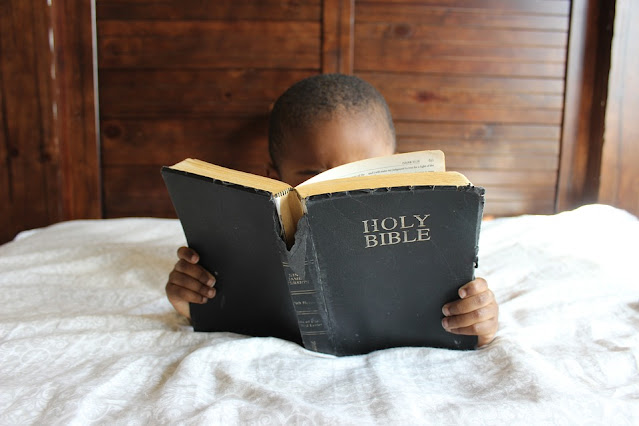Language and discourse are closely related concepts that have a significant impact on our understanding of the world. Language is a system of communication that allows us to convey meaning, express thoughts and ideas, and interact with others. Discourse, on the other hand, refers to language in use, or the way in which language is used in particular contexts to construct and convey meaning.
Thank you for reading this post, don't forget to subscribe!1. Language Vs Discourse
A language is a powerful tool for shaping and reflecting social reality. It is used to construct and represent social identities, groups, and issues, and to convey and reinforce social norms and values. Discourse, or language in use, is shaped by and shapes social identities, relationships, and power dynamics. The way in which language is used can reproduce, challenge, or change social relations of power, and can construct and maintain social identities and groups.

2. What is Discourse?
Discourse is a notoriously hard concept to define because the term has widely been used in different fields ranging from philosophy, politics, sociology, and linguistics. Smith and Bell (2007) state that the term discourse requires a careful analysis of text, including visual imagery and sound in addition to the spoken and written language. For them, “discourse is concerned with both the form of the text and its use in a social context, its construction, distribution, and reception. It aims at understanding and elucidating the meanings and social significance of the text” (p. 78). The stated claim demonstrates that the text is about reading the word and reading the world
According to the prominent French philosopher and political commentator Michel Foucault (1998), discourses:
are not once and for all subservient to power or raised up against it… We must make allowances for the complex and unstable process whereby a discourse can be both an instrument and an effect of power, but also a hindrance, a stumbling point of resistance and a starting point for an opposing strategy. Discourse transmits and produces power; it reinforces it, but also undermines and exposes it, renders it fragile and makes it possible to thwart. (pp. 100-101)

For Foucault, discourse is unquestionably intertwined with the power which operates everywhere and also by every social actor. In other words, power is diffuse and not concentrated. He also emphasizes the idea that power is exercised not only by individuals but also by institutions. This claim indicates that media institutions consist of both participants like channels’ owners who attain power and those who practice it, such as news reporters and editors within large institutions like CBS, fox news, BBCWN, and CNNI news channels.
From the socio-cognitive perspective, Van Dijk (1997) asserts the idea that discourse is a fuzzy term like other concepts, such as ‘culture’, ‘society’, and ‘language’. He defines it as “a form of language use, public speeches, or more generally spoken languages or ways of speaking” (p. 1). Van Dijk elaborates on the premise that discourse is also used to refer to ideas and ideologies that produce very framed sets of principles.
For example, there is the “discourse of neo-liberalism” and the “discourse of Marxism”. For him, linguistically speaking, discourse analysts systematically strived to insert other key components like who uses the language, how, why, and when. The locus of the language is then how people use it to exchange meaning in the social context.
Furthermore, Van Dijk (1997) proposes three main dimensions of discourse that operate in harmony as one unit: (a) language use (b) the communication of beliefs, and (c) interaction in a social situation. To do so, it is compulsory to amalgamate the examination of the context of the discourse, the analysis of groups, and power relations with the investigation of all formal structures, such as lexical choice and syntactic structure. But, the meaning of discourse changes from one perspective to another.
Read Also: Anything you Need to Know about Language and Discourse Analysis
Based on a psychological perspective, Ruiz (2009) defines discourse as:
Any practice by which individuals imbue reality with meaning…the discourse of greatest interest to sociologists is that which takes a verbal form, be it written or spoken. In practice, verbal discourse is discourse that can be accessed and examined by the analyst. In theory, verbal discourse is a privileged means of producing and transmitting meaning. (p. 2)
In other words, Ruiz (2009) accentuates the importance of verbal communication which strongly endures as the most significant way of transmitting meaning in comparison with visual discourse. Thus, both forms of discourse are of great value in the analysis of the different forms of texts in media. Closely enough, the discourse has a unique significance in language studies.
3. Language and Discourse
One of the key insights of discourse analysis is that language is not neutral but is deeply intertwined with social power relations. Discourse analysis is the study of how language is used in particular contexts to construct and convey meaning, and how it shapes or reflects social and cultural attitudes. Discourse analysts examine the ways in which language is used to reproduce, reinforce, or challenge dominant ideologies and power structures in society.

For example, in political discourse, the language used can create a certain narrative and shape public opinion. In media discourse, the language used in news articles, for example, can shape the way people think about a particular event or issue. In academic discourse, the language used in academic papers can shape the way research is understood and perceived.
Additionally, the way language is used in discourse can also reveal underlying assumptions and values that are reflected in the discourse, and how they shape our understanding of the world. The analysis of discourse can also reveal how language is used to construct and maintain social hierarchies, privilege, and power relations.

If you think these tips are useful, please “SHARE AND CARE”
4. References
Foucault, M. (1998). The History of Sexuality: The Will to Knowledge. London: Penguin.
Ruiz, R, J. (2009). Sociological Discourse Analysis: Methods and Logic. Forum Qualitative Sozialforschung / Forum: Qualitative Social Research, 10(2). Retrieved from http://www.qualitative-research.net/index.php/fqs/article/view/1298/2777
Smith, P., & Bell, A. (2007). Unravelling the Web of Discourse Analysis. In E. Devereux (Ed.), Media Studies: Key Issues and Debates (pp. 78-100). London: SAGE Publication.
Van Dijk, T.A. (1997). Discourse as structure and process of discourse studies: A multidisciplinary introduction. London: SAGE Publications.







